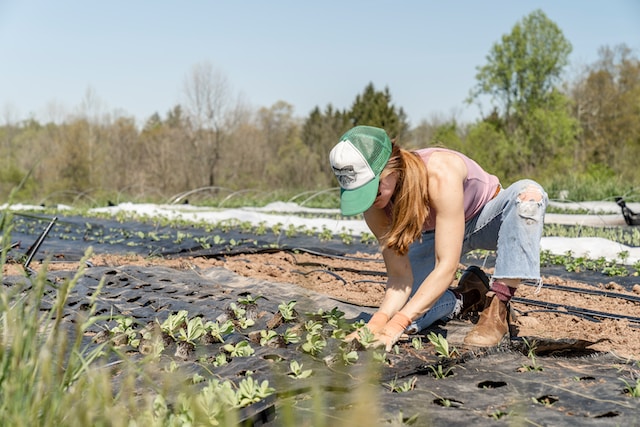Belizean agriculture is an integral sector, accounting for roughly 18% of total gross domestic product (GDP). Yet agricultural households face considerable climate change risks.
The B-Resilient program seeks to boost agricultural production and broaden market access for small farmers. Furthermore, this initiative will facilitate access to climate information as well as provide training sessions specifically designed for them.
Belizean Loans and Financing Opportunities
Belize’s high productivity and low labor costs offer foreign investors ample opportunity to do business there yet lags behind other Central American nations when it comes to ease of doing business. International surveys point out inefficiencies and bureaucratic red tape as reasons. Thankfully, however, the Belize government is working on eliminating some of these roadblocks to doing business in their country.
Belize has adopted legislation mandating local ownership of businesses, minimum levels of employment, and more transparent contracting processes. They have also made strides toward reducing the debt burden and expanding marine conservation efforts.
Development Finance Corporation of Belize (DFC) is a publicly owned financial institution providing small and medium-sized enterprises (SMEs) loans for various purposes. Operating six branches throughout Belize and serving over 18,000 clients with loan products including commercial, agricultural, and consumer loans; DFC boasts a diversified lending portfolio with most loans going toward agriculture or residential loans.
DFC is committed to gender mainstreaming its lending operations and has used gender-disaggregated data analysis of its loan portfolio as part of this commitment. Staff now possess more detailed knowledge of how women and men differ in terms of accessing financing; this knowledge will allow the Corporation to identify more gender-sensitive lending activities in its lending operations.
DFC’s primary aim is to assist farmers in adapting to climate change. To do so, it will invest in agroclimatic information systems designed to facilitate improved crop selection, soil conservation, pest and disease control as well as postharvest loss reduction. Furthermore, training on new agricultural technologies and better management practices will be provided and 30 percent of DFC’s climate-smart agriculture grants will go specifically toward women producers.
Post-COVID-19 Belize will present opportunities for value-added agriculture and rural development, especially among small-scale farmers as the country moves away from large-scale farming towards more sustainable food production. Meeting market demand will require expanding credit facilities as well as improving marketing support, recognition of collateral, and decreasing delinquency rates to stay ahead of this shift.
Belizean Loans for Agricultural Equipment
Agriculture and agribusiness industries play a central role in Belizean economy. With abundant rainfall and sub-tropical temperatures that facilitate fruit and vegetable production, Belize’s agriculture sector boasts strong roots. Sugar, citrus fruit and bananas are traditional export commodities while nontraditional products like cacao powder, hot pepper sauces and processed jams, jellies, and extracts have recently gained more traction as potential income and employment generators for their nation.
New agricultural equipment is vital to the continued success and expansion of Belizean farmers, particularly small farm families that cannot afford the high costs associated with purchasing and maintaining farming tools and equipment. To support the agricultural industry’s expansion in Belize, loans have been provided as financial tools as well as improved physical infrastructure such as drainage systems, irrigation channels, roads, etc.
Government assistance to improve market access includes providing prices for agricultural products via the Belize Agricultural Price Information System (BAPIS). This system allows retail sellers to compare selling prices with other farmers within their market and negotiate more effectively with buyers; additionally, it has increased transparency and improved the business environment within agriculture.
Rural Belize remains among the poorest nations in Central America despite efforts made by its government. To combat this issue, investments have been made in agriculture concerning reducing agroclimatic vulnerability by providing targeted technical advice for crop cultivation and land management purposes as well as by strengthening their national agrometeorological system.
Southern Belize was home to one of the highest poverty incidence rates, so IFAD and the Caribbean Development Bank joined forces to co-finance IFAD’s Community-initiated Agriculture and Resource Management Project (CARD). Between 2005 and 2007, their respective evaluation offices co-funded CARD. In June of 2007, IFAD Office of Evaluation carried out its completion evaluation in accordance with its Evaluation Policy as well as general provisions of its Evaluation Approach Paper; all evaluation activities were implemented jointly with the Evaluation and Oversight Division from CDB throughout its implementation process.
Loans for Agricultural Land
Belize boasts an abundant range of agricultural products and exports food products internationally but is vulnerable to climate change and natural disasters, including hurricanes, flooding, soil erosion, coral bleaching, sea level rise, seasonal droughts, hurricanes, etc. All this could reduce agricultural output and lessen food security.
In response to these challenges, Belize has joined forces with the International Fund for Agricultural Development and Green Climate Fund in implementing the six-year Resilient Rural Belize Program, with an aim of mitigating climate-related events’ adverse impacts on small farmers while simultaneously supporting sustainable market access for their produce.
Foreign investment in agriculture in Belize is welcomed but must abide by labor laws. Foreign companies must register their businesses and pay taxes; register employees; and provide worker insurance coverage. However, those holding development concessions are permitted to bring skilled personnel from outside of Belize to complement local labor forces, but labor regulations cannot be waived simply to attract investment.
As with other Small Island Developing States, Belize is especially susceptible to the catastrophic impacts of climate change and variability. Already experiencing hurricanes, floods, coastal erosion, and coral bleaching – such disasters may increase with global average temperature increases; droughts will worsen while rainfall decreases and soil quality decreases further.
Climate resilience of the agricultural sector is vital to its economy and food security, providing employment, foreign exchange income, income tax revenue, and poverty alleviation. Furthermore, agriculture plays a pivotal role in driving economic development and alleviating poverty.
Even with low per capita incomes, Ethiopia’s agricultural sector possesses tremendous potential for expansion through diversification and value-added production. To remain productive and competitive, however, significant investments must be made in technologies, machinery, and equipment as well as sustainable management practices.
Foreign firms still see opportunities in agricultural technology and value-added agribusiness, along with expanding their presence in the country’s tourism sector, which relies heavily on imported key inputs like fertilizer, packaging materials and machinery for its operations.
Loans for Agricultural Marketing
Marketing costs can impede profitability in agriculture. From traveling for the market to transporting and storing goods or advertising costs, they quickly accumulate. Thankfully, loans exist that can assist farmers overcome this hurdle.
These loan options can provide many advantages to farmers, such as expanding or purchasing equipment for their operation. Furthermore, their more flexible repayment terms make them suitable for larger agricultural operations with a solid business plan and ability to pay back debts promptly. However, traditional term loans remain the go-to choice when dealing with debt obligations.
Belize holds many opportunities for developing niche export markets, including those related to sugar production which is critical for its economy. Furthermore, sustainable tourism and ecotourism could become important economic contributors if infrastructure improvements such as roads and market access were improved and businesses such as farmers’ co-ops or small-scale enterprises supported.
Investment must be made in key institutions that support farmers, such as the Ministry of Agriculture, Food Security, and Enterprise; to reduce agro-climatic vulnerability through training in improved practices and improved access to meteorological data. This is particularly crucial because climate shocks could mean the difference between life and death; they’re expected to become increasingly frequent over time.
One of the primary challenges faced by small-scale farmers in Belize is maintaining financial sustainability after experiencing weather disasters, whether from drought, floods, tornadoes, insect infestation, or disease outbreaks. Such events can damage crops and lead to revenue losses for these farms; the FSA offers assistance programs designed to help recover these losses and get back on their feet financially.
Assistance can come in the form of grants for recovery expenses, loans, and subsidies to help with recovering lost income, as well as technical support in terms of training on agricultural best practices, risk management strategies, and mitigation plans. IFAD offers targeted assistance for the most vulnerable. This initiative serves as an example of its ability to provide targeted aid.




